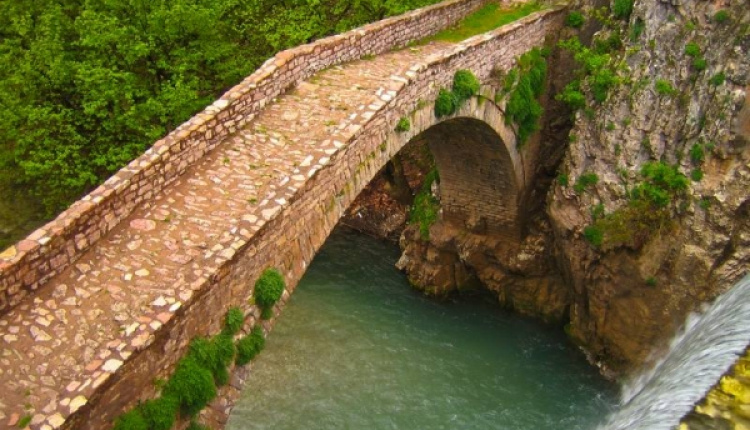Throughout the year you can also go horse riding, do archery, cycling and other mountain-related sports.
The forest near Pertouli is one of the most beautiful and well preserved fir forests in Greece. It is a refuge for wild animals, like deers, wolfs, bears and rare species of birds. The Aristotelio University of Thessaloniki has undertaken the tourist utilization and promotion of this forest.
Eighteen kilometers from Trikala to Arta, lies the beautiful town of Pili (Gate). The village lies at the entrance to the plains of Thessaly on the mountains of Pindos. The two opposite mountains, Koziakas and Itanos, separated by the Portaikos River are forming a magnificent natural gate, hence the name of the village. At the village, Pili, you can visit a Byzantine church which lies at a nearby village, Porta-Madonna built in 1283 AD. The main characteristic of this church is that it has placed on either side of the main gate to the sanctuary, the images of Mary and Christ. The images are unique, full-length, and made of colorful pebbles. The gate was throughout history a battlefield because of its position. Repeatedly destroyed by the conquerors, the last time it was burnt was on June 8, 1943, by the Italian troops during World War II.
The locals, in their effort to keep up morale, organize cultural events and traditional feasts all year around. The most famous is the annually organized “Andamoma ton Sarakatsanon”, on the last Sunday of May. This feast is a revival of old customs with traditional songs and dances.
Source: Greek Holiday Destinations


